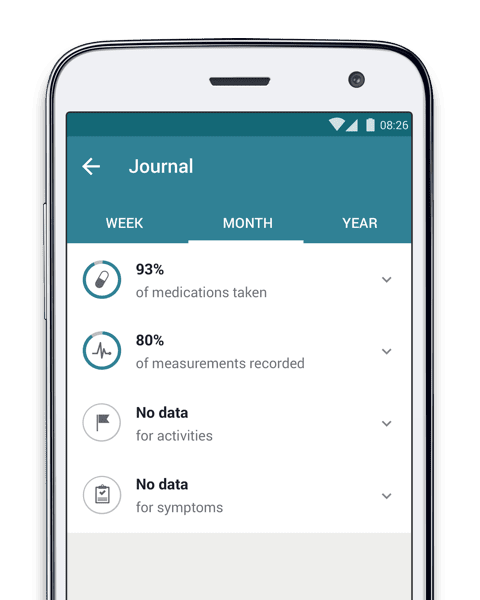Whether you or a loved one has been recently diagnosed with psoriasis or if you have been living with it for years, you will absolutely want to keep up with all the new developments. Fortunately, research has been progressing rapidly over the past years and safe, reliable treatments have been increasing. In today’s article, we will fill you in on what is available now and what you can expect to see in the future.
How is Psoriasis Being Treated Now:
Topical:
Topical treatments are typically the first line of defense when it comes to mild or moderate psoriasis. They come in ointment or cream forms that are applied in the same way as a lotion. These treatments are usually not immediately effective but if they will be results should appear in around six weeks. For people with scalp psoriasis, the treatment can also involve a blend of ointment and shampoo.
- Emollients - Acting as a moisturizer and protective layer to shield from dehydration, this is typically one of the first treatments prescribed by doctors as they typically have little to no side effects. Their primary benefit is to reduce itchiness, making them a great option for mild cases.
- Steroid Cream - Steroid creams are often a follow-up or alternative to Emollients and are typically used for mild to moderate cases. They vary in strength and are typically prescribed at stronger doses for worse patches of psoriasis. They function primarily by slowing the production of skin cells and reducing inflammation. While they do not pose a significant risk for severe side-effects, overuse of strong doses can lead to skin thinning.
- Calcineurin Inhibitors - these are ointments or creams that reduce immune system activity and inflammation. They are a common choice for treating psoriasis in sensitive areas if steroid creams have proven ineffective. It is common that these treatments cause irritation or burning when they are first used. However, these symptoms typically improve within a week.
- Vitamin D Analogues - These are typically used for moderate cases of psoriasis affecting the scalp or arms. They primarily function by slowing the production of skin cells but they also produce an anti-inflammatory effect.
- Dithranol - Having been used for over fifty years in the treatment of psoriasis, Dithranol is tried and true. It has been effective in reducing skin cell production and does not possess any major side effects. It is, however, worth noting that it can burn if it is too concentrated and it will stain anything it touches.
- Coal Tar – This is one of, if not the oldest, treatments for psoriasis. It is not exactly known why or how it works but it has been shown to help with decreasing inflammation and itchiness. It can be used in combination with other treatments and the side effects are minimal, but it does have a strong smell and the potential to stain clothing.
Phototherapy:
Also commonly referred to as light therapy, phototherapy is a treatment involving exposure to natural and/or artificial light. The devices used to administer such therapy oftentimes look like tanning beds, but they do function differently. Depending on the type of phototherapy it can pose risks if continued long term, but the milder forms are generally considered to be safe.
- UVB Therapy - UVB therapy works by slowing down the production of skin cells. It is a common next step for patients who have not responded to topical treatments as the side effects are still quite mild and sessions take only a few minutes each.
- PUVA Therapy - If other less harsh treatments have proven ineffective PUVA therapy is often used. It involves taking a tablet to increase kin sensitivity to light and exposure to Ultraviolet A light. It can often have more harsh side effects ranging from burning and itchiness to nausea. It is not recommended to use this treatment over long-periods since it can be a risk factor for skin cancer.
- Combination Therapy - The name combination therapy is a clear description. The type of combination varies based on the patient, but a typical regiment might be UVB paired with coal tar or another topical treatment.
Systemic:
Tablets, capsules, and injections are typically reserved for the most severe cases of psoriasis after other treatments have been ineffective. Systemic treatments, the last resort, have the potential to be extremely effective at treating psoriasis but they also carry with them the risk for potentially serious side-effects.
- Acitretin – Taken orally, acitretin decreases the production rate of skin cells. Typically, it is reserved for severe cases of psoriasis. There are a variety of potential side effects but the most common are dryness of the lops/nasal passages and cracking of the lips. In some extreme cases, it has even caused hepatitis.
- Ciclosporin – Acting by suppressing the immune system, ciclosporin has been shown to be effective in treating all types of psoriasis. However, it can require close monitoring from a doctor as it increases the chances of hypertension and kidney disease.
- Methotrexate – This drug can reduce the symptoms of psoriasis through the slowed production of skin cells and suppressed inflammation. It should not be taken by anyone with liver problems and it is important not to drink while taking it.
- Etanercept – Taken by injection twice a week, etanercept is a powerful drug with some of the more serious potential side effects on this list. The primary side effect is just a rash at the injection site but due to the nature of the drug and its effect on the whole immune system, there is also a risk of severe infection.
- Infliximab - Infliximab is administered via infusion. As it is another one of the more powerful drugs available for psoriasis, it is important to watch out for infections that can arise from a weakened immune system. Fortunately, the most common side effect experienced is only a headache.
- Adalimumab – Another treatment via injection, adalimumab is taken every two weeks and is a powerful treatment reserved for secure cases. Unfortunately, like other powerful psoriasis medications, it weakens the entire immune system which can lead to severe side effects. Due to the risk of side effects, patients are monitored and after sixteen weeks if there is no improvement the treatment will end.
- Ustekinumab – Ustekinumab requires far less frequent dosing than other injectable alternatives despite functioning very similarly. It also shares similar side effects that go along with a weakened immune system. Additionally, it can cause a throat infection and a rash where it is injected.
What We Can Expect to See in the Future:
We still may be years away from a cure but if the treatments we have now have not been able to curb your symptoms there could still be hope. The FDA is nearing approval on three promising new treatments.
- Bimekizumab – Bimekizumab is a biologic drug, meaning it is produced from living organisms. It is currently in phase three testing and is being developed by Belgian pharmaceutical UCB. Thus far, research has shown it to be safe and studies have appeared to be positive when it comes to effectiveness. In a clinical trial, it was shown to be more effective than Adalimumab at achieving a 90 percent improvement in terms of disease severity.
- Wynzora - Wynzora, also known as Calcipotriene-betamethasone dipropionate cream is a new drug that has been shown to be effective at clearing skin after around 8 weeks of use. It is non-greasy which participants in studies have reported being a positive quality.
- JAK Inhibitors – JAK inhibitors are a group of drugs that work by targeting pathways responsible for producing inflammatory proteins. They are used now to treat arthritis and colitis and studies have found them to be effective for psoriasis as well. Furthermore, they are as safe as current biologic drugs and come in a pill form rather than an injection. However, all current studies have been short-term and more research is needed to understand whether they can be an effective long term solution.
Conclusion:
A diagnosis of a chronic condition such as psoriasis can be incredibly frustrating, especially since it can feel like research progresses slowly. The good news is it is progressing. Treatments are becoming more effective and there are promising alternatives on the way.
Here are some other blogs we think you might enjoy:



